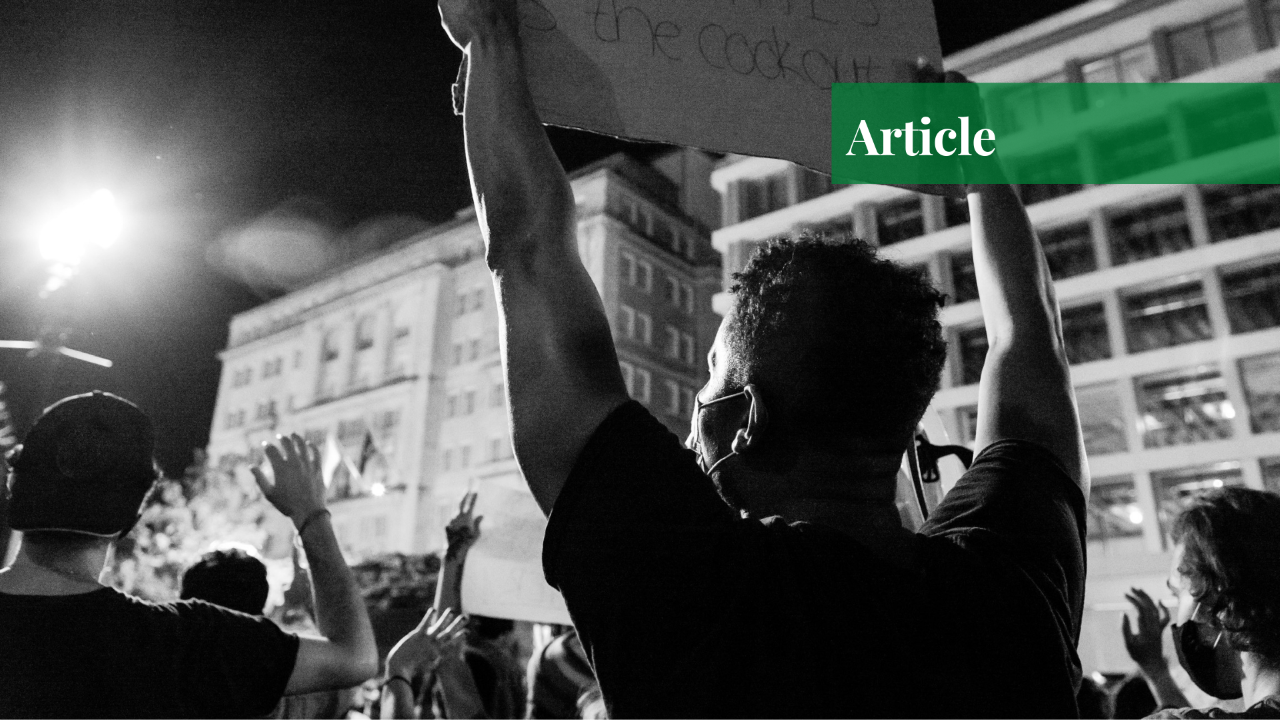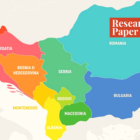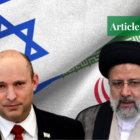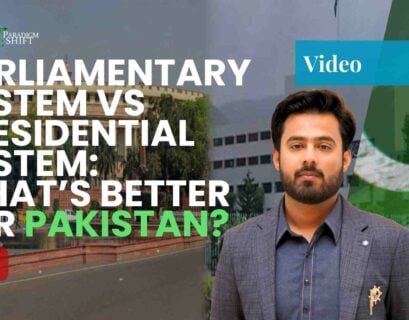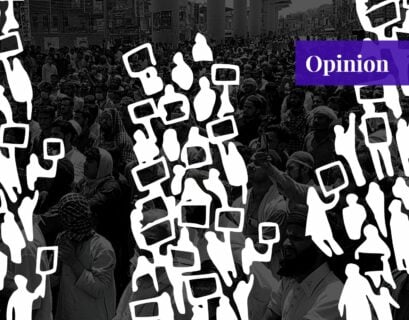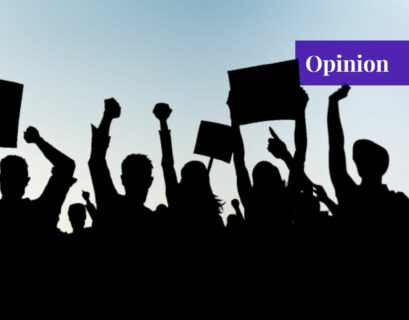Mr Hamza Sharif graduated with a degree in Mechanical Engineering from HITEC University. His areas of interest are geopolitics, current affairs, and history.
A Government for the Masses
Thousands of years have passed, yet mankind has not been able to find the perfect system of governance in the field of politics attributing to improving the social status and sharing powers for goodness. There have been many political philosophies, doctrines, ideas, and theories implemented, but they have remained irrelevant or failed to cater to the wills of the people to achieve satisfaction in their civic life.
All of them had dissatisfactions, shortcomings, loopholes, or fault lines which may be due to the lacking milieu compatibility or corrupted political mismanagement by the representatives for their vested interests. Mao Zedong once said that “To link oneself with the masses, one must act in accordance with the needs and wishes of the masses.” This quote holds a very important lesson for the leaders that rule the nations of the current generation.
Forms of Government
In the pages of history, one of the first-ever systems introduced was monarchism followed by military coups and theocratic dominance. The rule of the theocratic ideologies also dominated ancient history, but it also remained in ball gaming with other political systems too. The same still functions in certain countries today, but it is not looked upon as an ideal system.
The oldest Greek-Athenian patterned Monarchism was and is the archetype in most of Europe. At the present time in most of Europe, it has been limited to non-functional as a “Crowned Republic” or “Constitutional Monarch”. Many Arab countries have fully functioning “Absolute monarchy” or “Sheikhdoms”, some are progressing drastically as good rulers but some have not been able to advance and have rather proven oppressive.
Anyway, now the majority of the executive powers rest upon the parliament under a constitution agreed through a majority of the public opinion, whose members are elected by the people through elections of their choice. Then we have a dictatorship and many of its forms. We have military, hybrid, personalist, and single-party dictatorships.
Although Monarchy is a type of dictatorship, its transfer of power is simpler; the crown is just passed on from generation to generation. However, military dictatorship is when all executive powers are taken hold of by the military through force. Sudan and, most recently, Myanmar are experiencing such a sort of regime.
Hybrid and Single party dictatorships share the essence of democracy and such a political system is being followed in Vietnam and, to some extent, in China. A personalist dictatorship is where all the powers reside in the hands of one individual; it could be a politician, a military commander, bureaucrat or anyone at all, an appropriate example for personalist dictatorship is Kim Jong Un of North Korea.
People’s governance was basically a rebellious movement that emerged against monarchy with “The Republic” as its slogan. It is the most practical and praised system of the West conceptualized initially in North Italy “Republics” (Napoleonic Empire) and demotic in Athens-Greek against aristocrats. The Republic means public affairs, thus “No kingdom or country can be considered some one’s private property but is a public matter”.
In the Republic, the irony was that in a certain stratum of society, people were not allowed to hold any property or even have the right to vote. Similarly, blacks were not allowed to cast votes even if they had the property. These discriminations led to movements like “Chartist” and “Suffragette” in Europe, which demanded the right to vote for all, and thus started the conversion to an important transition to “modern democracy”.
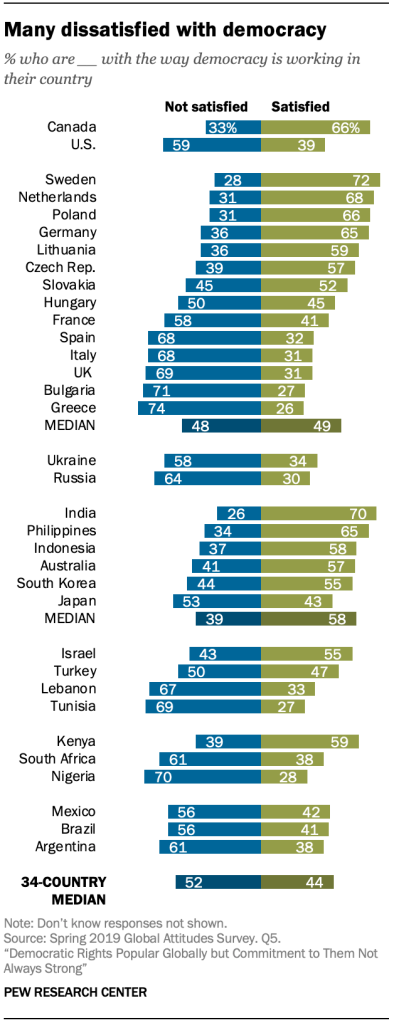
People and Democracy
Demos means the public and kratia means rule and so democracy means the rule of the people. This system of government holistically depends upon the people of the state as to how they would want to be governed with optimal satisfaction. Everything is determined by the people, for the people and, most importantly, the government is formed from the people. It is a system that heavily relies upon the concept of ‘‘majority rules’’.
People also tend to describe democracy as the majority, regardless if it is right or wrong morally. Still, the functioning of the democratic system has many times been strangulated by anti-democratic forces, theocratic interference, political impiety, economic dishonesty, and social traditions vis-à-vis taboos that have continued conspiring to derail the system’s functionalities.
The efficacious functioning of a liberal democratic system is like a wall clock, where if all the parts of it are working, only then will it be able to give the correct time. Similarly, the democratic system counts on the correct functioning of the electoral system, judiciary, parliament, executive, legislative bodies, and impartial performance by the institutions remaining within the constitutional parameters.
In today’s fast-paced world, modern democracy encompasses issues like freedom of speech, inclusiveness, equality, consent, voting rights and minorities/human rights, economic direness cursed with corruption, divergent socio-economic mindsets and especially the prevalent problem of terrorism. If these issues are not handled and resolved from dissonance to consonance peacefully, a country can plunge into a critical insecurity situation thus either go into the hands of the wrong people or cease to exist.
Abusing Freedom of Speech
We often hear about freedom of speech and how it’s such a vital part of democracy, but if we analyze today’s world, we can see that rather it is a tool excessively being used in favor of the rich and ruling class. Wherever the interest of these exploiting classes is being harmed, various types of propaganda start to surface, regardless of statements being made on solid or unsubstantiated grounds, they take refuge in the freedom of speech and begin to penetrate the vulnerable minds of the masses.
The most hypocritical part of this so-called ‘right’ is that sometimes it is actually forfeited and that, too, in those cases when it harms the rights of the powerful people. So from this, you can conclude why I call it a tool. Definitely, in some cases, it has been of use to the masses as well against corrupt and savage politicians, but those examples are insignificant. Much of the freedom of speech has been used for the wrong purposes and reasons.
Freedom of speech is essential but should be used in a manner as expressed in Islamic Sunna based on verification; there should be certain rules and a sense of responsibility with self-applied discipline before one decides to put out information, and the most important complication should be that whatever the information is, people must not be allowed to say whatever comes to their minds or from hearsay, this leads to misinformation and pollutes the mind of the masses.
America is the biggest exporter of the idea of freedom of speech, yet it has ignored it once its political structure came into trouble by Trump and his supporters, and today most of Trump’s social media accounts are banned. Even Mao Zedong encouraged constructive inter-party criticism and democratic process for better clarity in the objectives to achieve.
Democracy is just a count of numbers, and as Socrates once said that democracy is as good as the education that surrounds it. Socrates was of the view that democracy was not for everyone and rather it is a system that requires only people who know how politics work to be able to make it function correctly. Another quote worth mentioning is the one from Plato, “No democracy can exist unless each of its citizens is as capable of outrage at injustice to another as he is of outrage at injustices to himself.”
China’s Unique Government
In my opinion, democracy is faltering as a system in today’s world, especially in Pakistan. One extrinsic system, the only successful one in states in the modern time is actually China’s and Vietnam’s unique one-party system (people’s democracy); they’ve been able to rapidly progress in economy, science, defense and catered for a good progressive civic system.
Although there are more parties involved in the parliament (9 parties in total), the Chinese Communist Party is the main one. If we observe the West, its political system has been in retrogressive mode. America has been observing its democratic values for years and yet, its social and political structure is in ruins.
With the Covid-19 pandemic, most of the world’s political systems were put to test, and how well each country coped with this pandemic is right in front of us. China was able to bring normalcy back quicker than any other country, whereas the pioneer of democracy, West, still struggles today to contain the breakout.
We must not forget that the most ideal system has already been given to Pakistan, and that is the Islamic political welfare system. It is in very close resemblance to democracy (people’s participation) and the Chinese socialist progressive system (disciplined and writ of the government), but certain dynamics of it differ, such as self-discipline of the leadership and procedure through which he is elected.
Importance of the Judiciary
Overall, we can also conclude that if the judicial system works sincerely, any system of governance can flourish, but the speed would depend upon its flawless leadership leading as a self exemplary way of life. The judicial system in the state of Medina was very powerful; the dynamics of the system were quick which enabled drastic progression socially and economically.
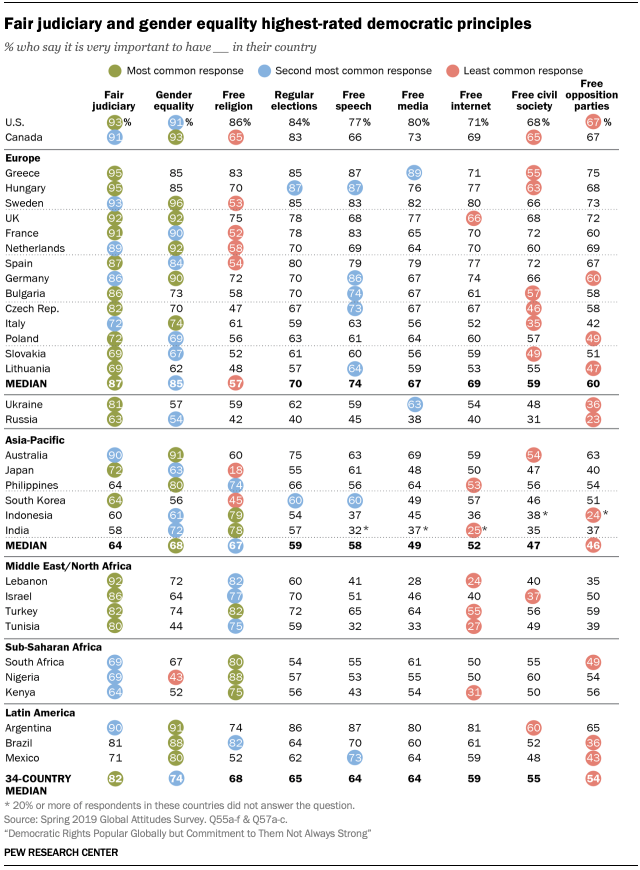
Hazrat Ali (R.A) mentioned once that a system of non-Muslims can function, but a system with injustice would never flourish. It is the system that enabled Islam to exponentially grow throughout the world. It is somewhat similar to the democratic-based system but its essence is truly Islamic and for the welfare of the ordinary people. At the time of the Second Caliph Umer (R.A), it was discipline and the selflessness of Umer (R.A) as a leader which enabled the system to flourish.
A New Government for Pakistan
For Pakistan, the existing democracy seems a mismatch and totally disoriented to the people. Democracy is a system of the West and our politicians are practicing it without serving the real sense of politics. Our traditions, norms, and our livelihood as a whole do not have similarities with the West. We need a system that is well ingrained into Pakistani people’s temperament and social structural values.
Pakistan needs a composite system, one which has the essence of both democracy and the Islamic welfare system, but, most importantly, we must not try to impose any system forcefully; we must be very flexible and patient in choosing our system of governance. A quote by Roosevelt, “Democracy cannot succeed unless those who express their choice are prepared to choose wisely. The real safeguard of democracy, therefore, is education.”
In Pakistan, it is very unfortunate that governance is actually considered a business instead of a sacred duty as mentioned in Islamic political guidance. Instead of building a law-abiding nation, they created ‘jhattas’, mafias, nepotism, ‘bradariesm’, and imparted parochialism just to secure their vote bank and vested interest.
These fallouts between the political bodies are the number one reason for the slow progression of a nation. For this, I believe the ‘first past the post electoral system’ holds much of the responsibility. The solution to this looks to be the ‘proportional representation system’, where there is not one single main party that forms the government but the parties involved collectively form the government (parliament or with preference a presidential system).
“A true democracy has never existed and never will exist; for it is against the natural order of things that the majority should govern the minority”, these words were said by Jean-Jacques Rousseau. This quote to some extent also counters the first past the post electoral system. If we assess the first half of the quote, we can also say that democracy might be a perfect system but to enable it to function properly, we need all the components of it to work consistently without any hiccups and that is the most difficult part, as it is really a challenge to smoothly run a democratic system.
A lot was hoped for from the present government but, unfortunately, it is failing in its commitments. However, we still have yet to see how quickly this government works with wisdom to handle the situation at all facets. We need leadership that is not only honest but also fully matured and pragmatic in approach. A revolutionary and a real leader would be required or, at least sincerity from the current ruling class to change the direction of our governance system.
The current system heavily relies upon and only benefits greatly the rich and powerful, and this group of people will not allow their vested interest to come into danger. It is very essential that we improve the standards of our bureaucracy. Coming onto the judiciary, it is very vital that the law is implemented in an impartial manner
We also need to be able to impart better quality of education because, as mentioned above, democracy demands wisdom, and education is an easy way to forming an understanding of how things are supposed to be run. All these changes can be done if—and only if—Pakistan manages to sprout out a leader with a well-motivated team, the ones who are sagacious and sincere towards their duty.
If you want to submit your articles and/or research papers, please check the Submissions page.
The views and opinions expressed in this article/paper are the author’s own and do not necessarily reflect the editorial position of Paradigm Shift.
